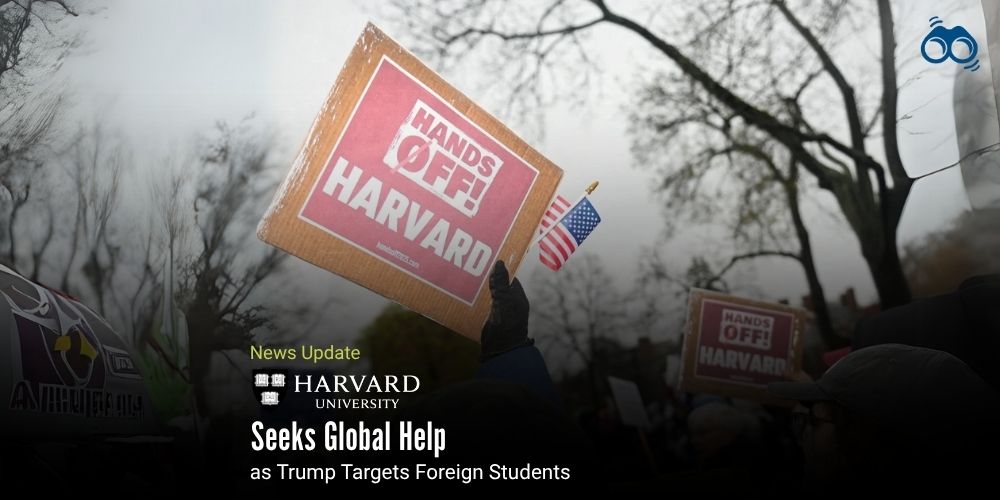Higher Education Institutions Explore Solutions for International Students Facing Uncertainty
Trump Administration’s Visa Policy Sparks Concern Among U.S. Universities
Recent restrictions on international student visas introduced by President Donald Trump’s administration have raised significant concerns within the academic community. These policies present considerable challenges for foreign students, potentially disrupting their education and limiting their access to institutions such as Harvard University. In response, Harvard has been engaging in discussions with prominent U.S. and international universities to secure temporary academic placements for students affected by visa uncertainties.
Institutions such as the University of Chicago and the London Business School have explored solutions to accommodate students who had secured admission to Harvard but now face visa-related obstacles. This collaboration reflects broader efforts within higher education to counter the negative impact of policy shifts that restrict academic mobility. Several U.S. universities have reportedly been preparing contingency plans, including relocating students to overseas campuses or partner institutions to maintain educational continuity.
The Trump administration has allegedly barred Harvard from admitting foreign students, citing concerns over liberal bias and antisemitism on campuses. Although a federal judge temporarily halted the order, uncertainty remains. In addition, U.S. officials have reportedly suspended all student visa processing nationwide, citing security concerns and the need for intensified background checks, including social media reviews. Some visas have allegedly been revoked, and certain students detained, particularly those linked to Israel-Hamas protests.
Observers warn that the crackdown on international students could have severe financial consequences for universities, as students from China and India alone contribute around $45 billion annually to the U.S. economy. Nafsa, an organisation supporting international education, has criticised the recent policy changes as an “unacceptable assault” on an already strong student vetting system, cautioning that they are creating fear and uncertainty among students seeking to study in the U.S. Similarly, ETS chief Amit Sevak has reported a sharp decline in English test applications, suggesting that students may delay, withdraw, or apply elsewhere, with broader impacts expected by 2026.
In response to the growing challenges, Harvard has reportedly launched legal action against the Trump administration’s attempt to block it from admitting foreign students. President Alan Garber has stated that contingency plans are in place to support international students through the summer and the upcoming academic year. With 27% of its students coming from abroad, Harvard remains a key target of criticism, and students across the U.S. have expressed fears of being denied re-entry despite holding valid visas.
Similarly, Suzanne Rivera, president of Macalester College, where international students comprise 20% of the student body, has launched an alumni-funded campaign and created additional internships to support students remaining in the U.S. amid immigration policy changes. Meanwhile, universities such as NYU, Northeastern, and Hult have been considering relocating international students to their overseas campuses, including branches in Qatar, should visa delays persist.
While Martin Boehm, executive vice-president at Hult, remains optimistic, noting no current visa issues, he acknowledges that relocating students abroad could present challenges due to differences in costs, academic standards, and credit transfer policies. Likewise, Grant Cornwell, president of Rollins College, where international students make up about 10% of enrolments, has highlighted the value of diverse perspectives that foreign students bring to universities. He has also pointed to growing anxiety among students awaiting visa appointments, warning that recent policy changes could discourage future enrolments. Restrictive immigration policies threaten global academic mobility, making proactive institutional measures essential to protecting international education.
Editor’s Note:
The Trump administration's recent visa restrictions pose a serious problem for both international students and the universities that depend on them. These policies, by restricting educational access, threaten to disrupt the global flow of knowledge, reduce diversity within institutions, and destabilise university finances. Consequently, prominent universities such as Harvard, NYU, and Northeastern are forced to find new approaches, such as temporary placements and campus changes, to lessen the impact of these strict regulations. Governments must strive for solutions that uphold educational opportunities for skilled students while effectively managing national security issues, rather than hindering academic mobility. Higher education must remain open, welcoming, and interconnected worldwide. Universities should persistently champion unrestricted academic exchange, promoting the principle that education should surpass political differences and nurture cooperation rather than detachment.
Skoobuzz asserts that safeguarding the global academic community requires policies rooted in inclusivity, mutual respect, and the unwavering belief that the pursuit of knowledge must remain above geopolitical divides.














0 Comments (Please Login To Continue)